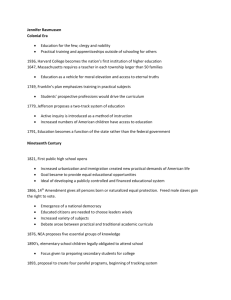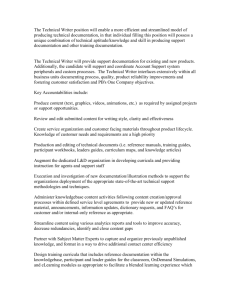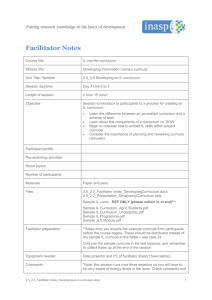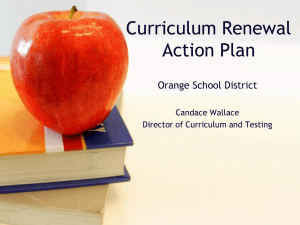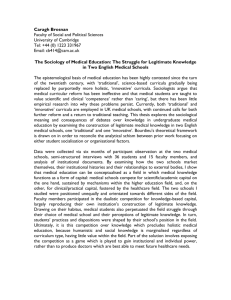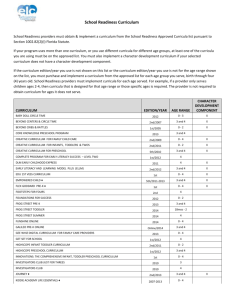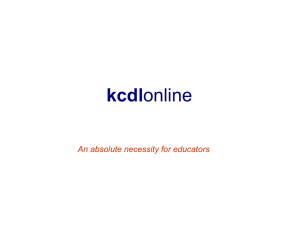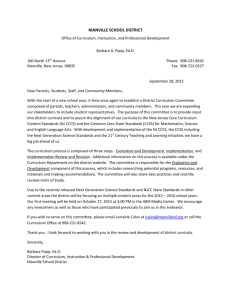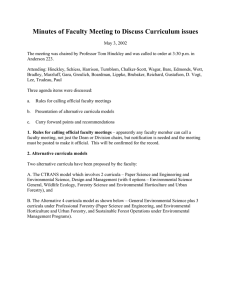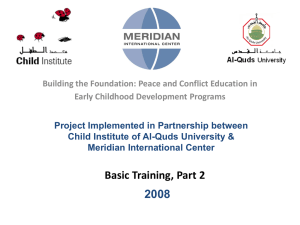Social Skills Curricula at a Glance
advertisement
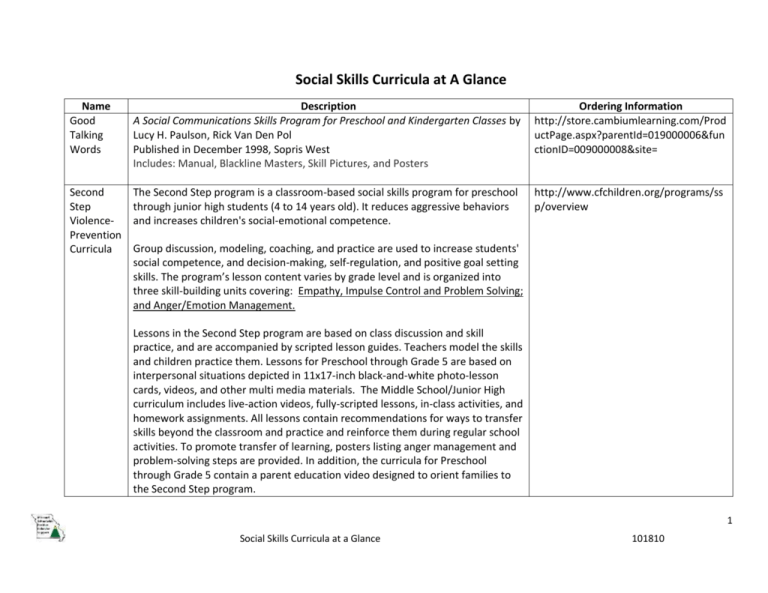
Social Skills Curricula at A Glance Name Good Talking Words Description A Social Communications Skills Program for Preschool and Kindergarten Classes by Lucy H. Paulson, Rick Van Den Pol Published in December 1998, Sopris West Includes: Manual, Blackline Masters, Skill Pictures, and Posters Ordering Information http://store.cambiumlearning.com/Prod uctPage.aspx?parentId=019000006&fun ctionID=009000008&site= Second Step ViolencePrevention Curricula The Second Step program is a classroom-based social skills program for preschool through junior high students (4 to 14 years old). It reduces aggressive behaviors and increases children's social-emotional competence. http://www.cfchildren.org/programs/ss p/overview Group discussion, modeling, coaching, and practice are used to increase students' social competence, and decision-making, self-regulation, and positive goal setting skills. The program’s lesson content varies by grade level and is organized into three skill-building units covering: Empathy, Impulse Control and Problem Solving; and Anger/Emotion Management. Lessons in the Second Step program are based on class discussion and skill practice, and are accompanied by scripted lesson guides. Teachers model the skills and children practice them. Lessons for Preschool through Grade 5 are based on interpersonal situations depicted in 11x17-inch black-and-white photo-lesson cards, videos, and other multi media materials. The Middle School/Junior High curriculum includes live-action videos, fully-scripted lessons, in-class activities, and homework assignments. All lessons contain recommendations for ways to transfer skills beyond the classroom and practice and reinforce them during regular school activities. To promote transfer of learning, posters listing anger management and problem-solving steps are provided. In addition, the curricula for Preschool through Grade 5 contain a parent education video designed to orient families to the Second Step program. 1 Social Skills Curricula at a Glance 101810 Name The Tough Kid Social Skills (1995) Description Teaches students how to resolve conflict, express frustration, and interact with others. The ten specific social skills presented include recognizing and expressing feelings, using self-control, resolving arguments, and joining in. Part I provides information you can use to maximize the effectiveness of your program. Part II offers outlines to conduct social skill sessions. The ACCEPTS is a complete curriculum for teaching classroom and peer-to-peer social Walker skills to children with or without disabilities in Grades K through 6. The program Social can be taught in one-to-one, small-group, or large-group instructional formats. Skills ACCEPTS includes a nine-step instructional procedure based on the principles of Curriculum direct instruction; scripts that teach critically important teacher-child behavioral competencies and peer-to-peer social skills; and behavioral management procedures. The Accepts Classroom Skills - Listening to the Teacher, When the Teacher Asks You to Do Program Something, Doing Your Best Work, and Following Classroom Rules Ordering Information Longmont, CO: Sopris West http://positiveschoolclimate.sopriswest. com/product.asp?productid=28 http://www.proedinc.com/customer/pr oductView.aspx?ID=625 Basic Interaction Skills - Eye Contact, Using the Right Voice, Starting, Listening, Answering, Making Sense, Taking Turns, Questions, and Continuing Getting Along Skills - Using Polite Words, Sharing, Following Rules, Assisting Others, and Touching the Right Way Making Friends Skills - Good Grooming, Smiling, Complimenting, and Friendship Making Coping Skills - When Someone Says No, When You Express Anger, When Someone Teases You, When Someone Tries to Hurt You, When Someone Asks You To Do Something You Can't Do, and When Things Don't Go Right 2 Social Skills Curricula at a Glance 101810 3 Social Skills Curricula at a Glance 101810
